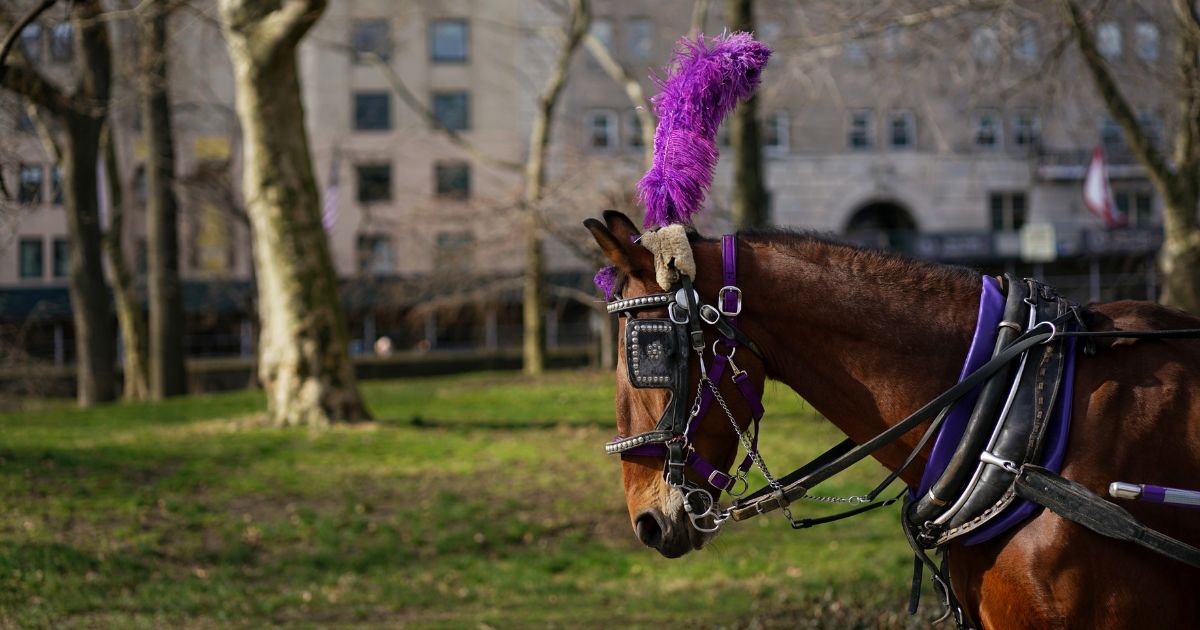
Free Upper East Side News, Delivered To Your Inbox
Mayor Eric Adams has officially joined the growing chorus of voices calling for an end to horse-drawn carriages in New York City.
This week, Adams called on the City Council to pass Ryder’s Law, a bill that would phase out the city’s horse-drawn carriage industry by 2026 and replace it with electric alternatives. The legislation has been stalled in the Council for over a year.
Advertisement
In addition to voicing his support for the bill, the mayor signed Executive Order 56, which lays the groundwork for the industry’s closure and directs city agencies to increase oversight and enforcement. The order also creates a framework for drivers to voluntarily return their licenses and instructs agencies to begin identifying new employment opportunities for workers in the carriage trade.“New York City is a place where history and progress live side by side, but as long as I am mayor, we will always put public safety first,” Adams said in a statement. “While horse-drawn carriages have long been an iconic fixture of Central Park, they are increasingly incompatible with the conditions of a modern, heavily-used urban green space.”
The mayor’s announcement follows a series of high-profile incidents that have brought renewed scrutiny to the horse-drawn carriage industry. In August 2022, a horse named Ryder collapsed in Midtown and later died. Just last month, another horse named Lady died near Central Park, and a separate incident saw a horse named Bambi bolt through the park, causing passengers to leap from a moving carriage.
In total, 2025 has already seen three runaway horse incidents in or near Central Park, according to the mayor’s office.
“Despite the changes we’re announcing today, we understand that this executive order can only go so far, as real, long-term change requires legislation,” said Adams. “We need the Council to do their job, step up, and work with us on comprehensive reform. This is not about eliminating this tradition — it’s about honoring our traditions in a way that aligns with who we are today.”
Advertisement
The Central Park Conservancy, which has historically stayed out of the debate, recently shifted its position and publicly endorsed the ban. In a letter sent to Mayor Adams and City Council Speaker Adrienne Adams, Conservancy President Betsy Smith wrote that the carriages had become a “public safety risk” and called Ryder’s Law “a matter of public health and safety.”“We do not take this position lightly,” Smith wrote. “But with visitation to the park growing to record levels, we feel strongly that banning horse carriages has become a matter of public health and safety.”
The carriage industry has pushed back against the proposal, calling it unfair and exaggerated. Christina Hansen, a driver and spokesperson for Transport Workers Union Local 100, argued that horse incidents are rare and that e-bikes and illegal pedicabs pose a greater danger to the public.
“There are many problems with the park drives,” Hansen told reporters after the Conservancy issued its letter. “But the carriages aren’t one of them.”
According to city records, the industry currently includes 68 licensed owners, 183 horses, and over 200 drivers and stablehands. Standard rides through Central Park cost just over $70 for 20 minutes.
While debate over the industry is far from new, Adams’ executive order marks one of the strongest signals yet that change may finally be on the horizon. Whether Ryder’s Law moves forward now rests in the hands of the City Council.
Have a news tip? Send it to us here!



